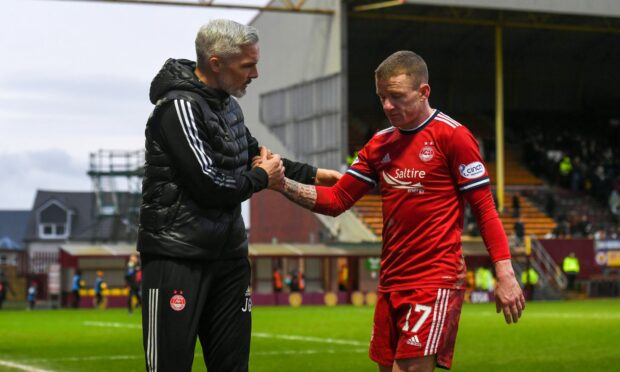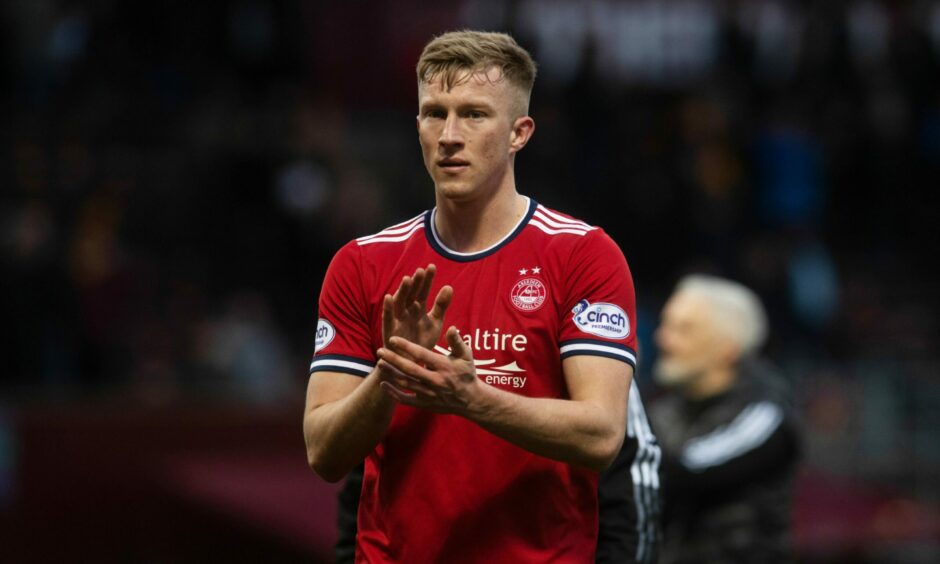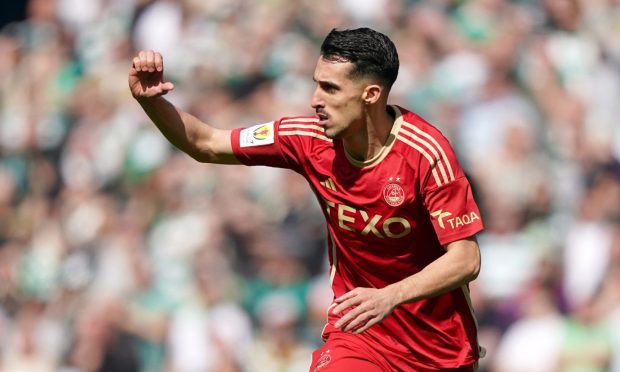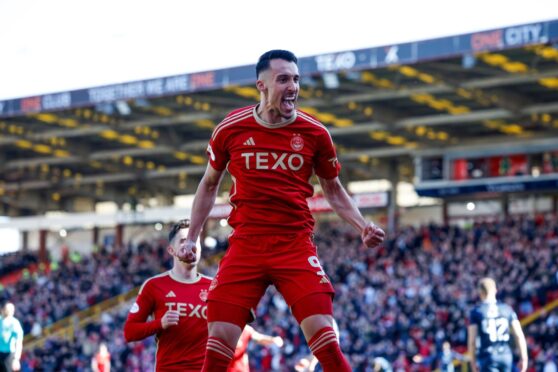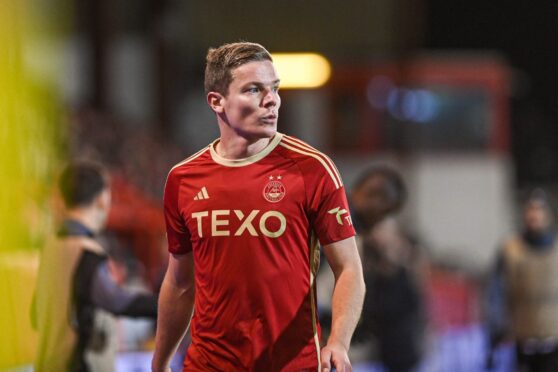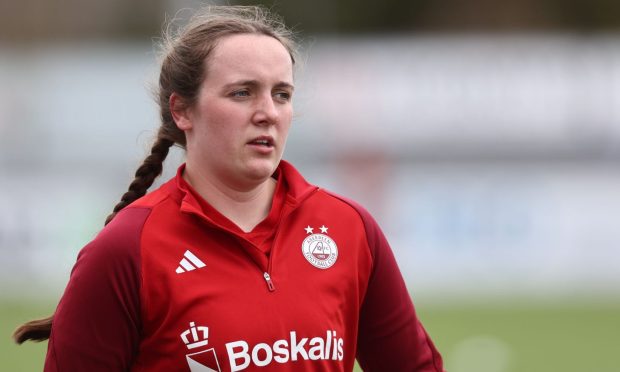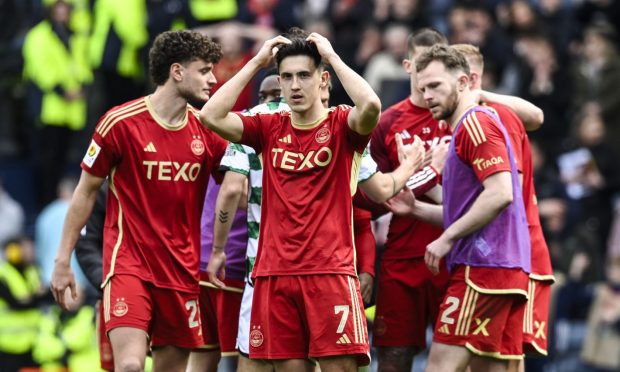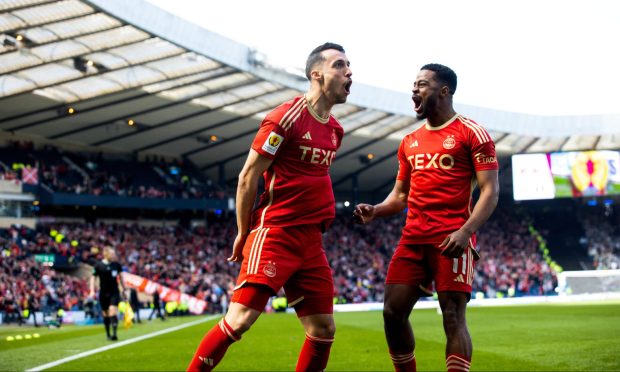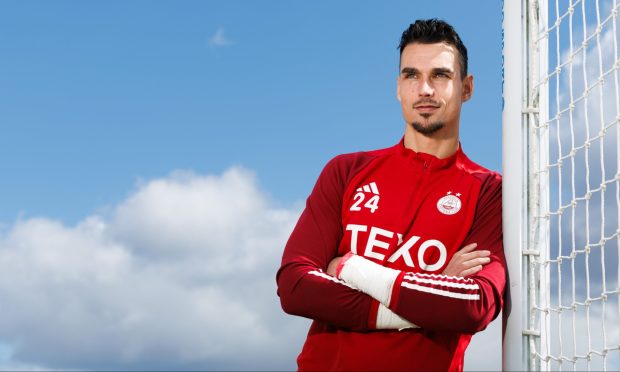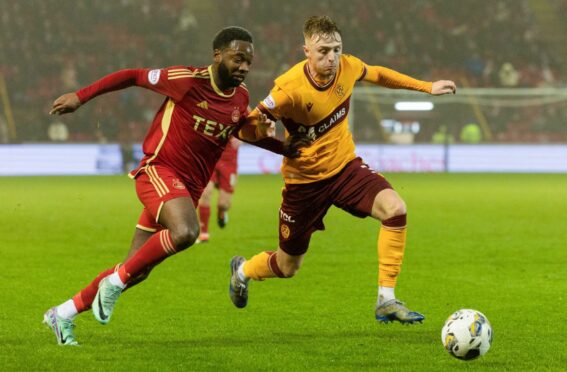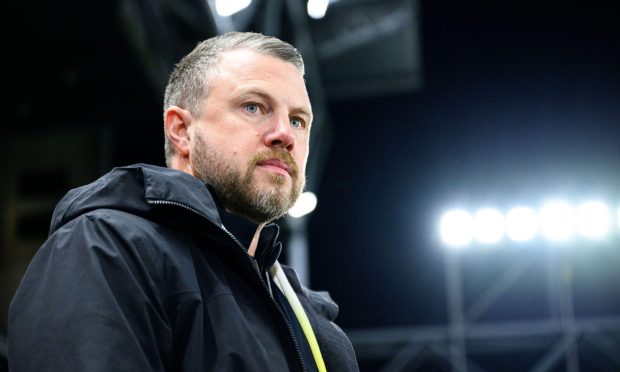Whatever other qualities he may bring to the Aberdeen dugout, one fringe benefit of hiring Jim Goodwin is having someone in position who has previously had to account for the Dons as an opponent.
He knows what those on the other side of the fence respect and fear about Aberdeen’s team; what areas they most strenuously scheme against to eliminate its strength.
It is no coincidence, therefore, that his first act in charge of his new team was to restore Ross McCrorie to its heart.
Not since Paul Sheerin turned in his teamsheet for last season’s cup tie at Dumbarton had an Aberdeen manager picked McCrorie to start in midfield, a glaring omission which Goodwin did not hesitate to address.
There were often reasons why Stephen Glass preferred to utilise McCrorie in defence – injuries to senior centre-backs, accommodating others in midfield, or to give his possession-based team a ball-player in the back line which it would otherwise lack – but none was compelling enough to justify breaking up his engine-room partnership with Lewis Ferguson: the only thing about the team he inherited which needed no improvement.
Goodwin’s immediate restoration of the team’s centrepiece advertised his desire for it to compete in the trenches, and pre-empted a tousy game which bounced chaotically and frenetically along in unappealing conditions.
Such was the toll of its pace and physicality that more than half of the outfield players immediately sank to their haunches upon the referee’s final whistle, having given more of themselves than a point apiece rewarded.
It was an important show of grit by an Aberdeen side which has not always seemed convinced of the value of such qualities. Such prosaic efforts are scarcely for a manager’s showreel, but they are exactly what the Dons need Goodwin to show in the short term.
